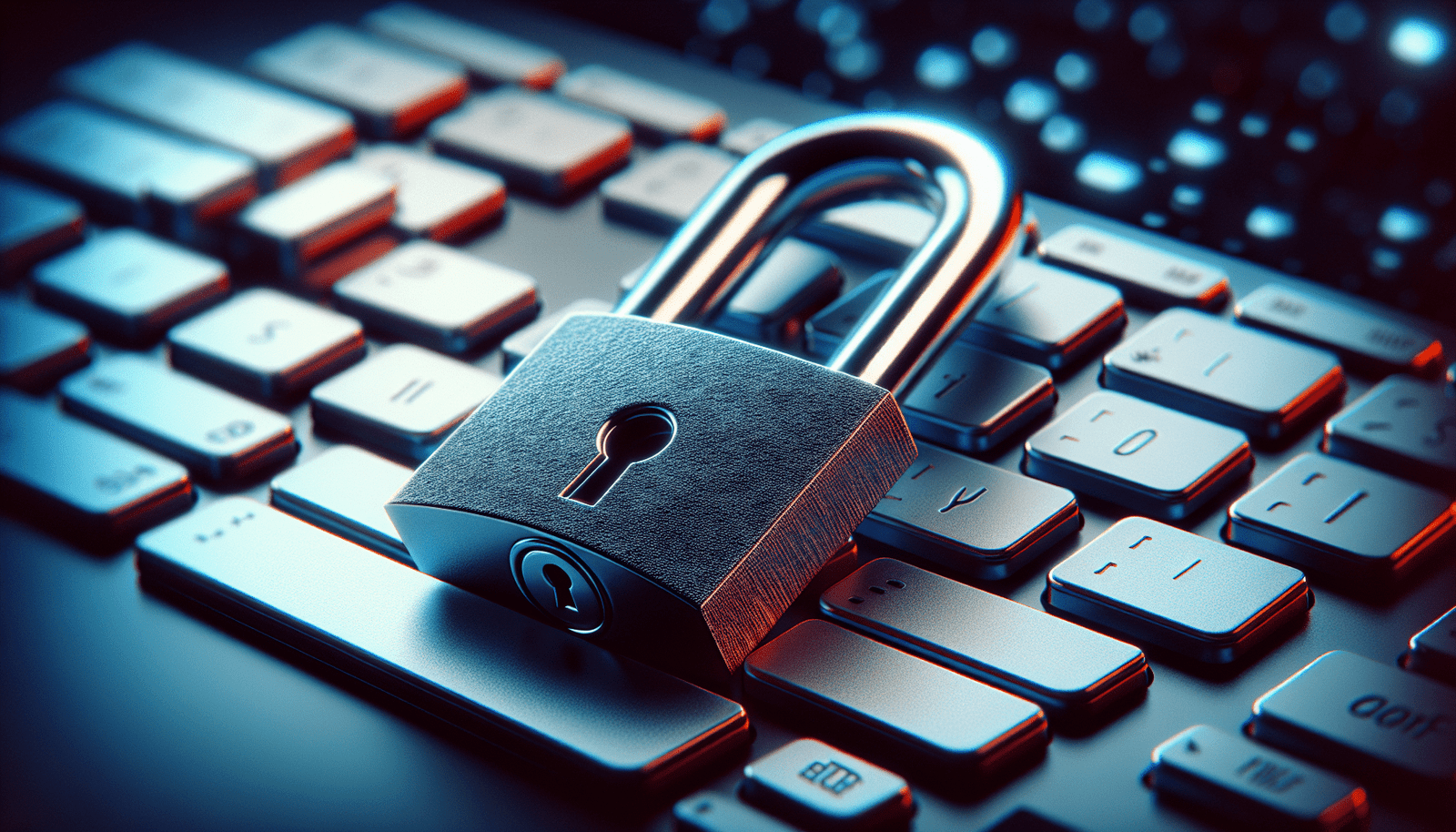Have you ever wondered what happens to your personal information when you browse the internet or use apps on your phone? In the digital age, data privacy is more important than ever, yet it can often feel overwhelming to navigate.
What is Data Privacy?
Data privacy, at its core, is about safeguarding personal information. It involves the proper handling, processing, and management of data to ensure that individuals have control over their own information. In a world where data is considered a valuable resource, understanding how data privacy works is essential for everyone.
The Importance of Data Privacy
I often think about how much of my life is shared online. Every time I post on social media, make an online purchase, or even check my email, I am leaving behind a trace of personal data. Protecting this information is vital, as it can prevent identity theft, financial fraud, and a breach of my personal life.
Types of Data Collected
Organizations collect various types of data, including:
| Type of Data | Description |
|---|---|
| Personal Data | Includes names, addresses, emails, and phone numbers. |
| Behavioral Data | Captures browsing history, click patterns, and engagement metrics. |
| Financial Data | Encompasses credit card numbers and banking information. |
| Health Data | Relates to medical records and health-related information. |
| Location Data | Traces the geographical locations from which you access services. |
Each category poses different privacy risks, and understanding these can help me make informed choices about sharing my information.
Key Concepts in Data Privacy
Data Ownership
One of the first concepts I try to grasp is data ownership. This refers to who has the rights to access and control personal data. Ideally, I want to be the owner of my data, having the ability to decide what is shared and with whom. However, many companies treat user data as their own asset, leading to complicated ownership dynamics.
Consent
Consent is vital in my journey for data privacy. This means giving permission for my data to be collected and used. I see many websites request consent through cookies, but I often wonder if I truly understand what I’m agreeing to. It’s essential for me to read privacy policies, even though they can be lengthy and complex.
Transparency
Transparency involves how openly organizations disclose their data practices. I appreciate companies that are clear about what data they collect and how they use it. Transparency builds trust and makes it easier for me to decide whether I feel comfortable sharing my information.
Data Breaches
Data breaches occur when unauthorized individuals access personal data. These incidents underline the necessity of robust data security measures. I have seen countless news stories about data breaches, and they serve as stark reminders for me to stay vigilant about my personal information.
Data Privacy Laws and Regulations
General Data Protection Regulation (GDPR)
One of the most significant legal frameworks is the General Data Protection Regulation (GDPR), which came into effect in the European Union in 2018. This regulation focuses on protecting the personal data of EU citizens and has wide-reaching implications for organizations worldwide.
| Key Principles | Description |
|---|---|
| Right to Access | I can request access to the personal data an organization holds about me. |
| Right to Erasure | Also known as the “right to be forgotten,” allows me to request the deletion of my data. |
| Data Portability | Enables me to request my data in a machine-readable format. |
| Privacy by Design | Organizations must consider data protection principles during the design of new systems. |
Understanding GDPR helps me know my rights regarding data privacy, even if I may not be in the EU.
California Consumer Privacy Act (CCPA)
In the United States, the California Consumer Privacy Act (CCPA) is a significant law that gives Californians enhanced privacy rights. It focuses on transparency, allowing residents to know what personal information is collected and to whom it is sold.
| CCPA Rights | Description |
|---|---|
| Right to Know | I can request details about the personal information collected about me. |
| Right to Delete | Grants me the right to have my information deleted. |
| Right to Opt-Out | Allows me to opt-out of the sale of my personal information. |
These laws are crucial for protecting my privacy and empowering me with more control over my data.
Tips for Protecting My Data
Use Strong Passwords
I have learned that using strong and unique passwords is one of the easiest ways to protect my accounts. Passwords should be complex, combining uppercase and lowercase letters, numbers, and special characters.
Enable Two-Factor Authentication
Whenever possible, I enable two-factor authentication (2FA) for my accounts. This added layer of security requires something I know (my password) and something I have (a mobile device or security code) to access my accounts.
Be Cautious with Public Wi-Fi
Using public Wi-Fi can expose my data to risks. I try to avoid accessing sensitive information, like online banking, when connected to public networks. If I must use them, I consider using a Virtual Private Network (VPN) for added security.
Update Privacy Settings
I regularly check the privacy settings on my social media profiles and other online accounts. Adjusting these settings can help limit who can see my information and what data is shared.
Think Before Sharing
Before sharing personal information online, I always pause to think about its necessity. Whether it’s a social media post or a form on a website, I consider how this data might be used in the future.
The Role of Organizations in Data Privacy
Building Trust
Organizations hold a significant responsibility in the realm of data privacy. Building trust with users like me requires transparency and ethical data handling practices. When companies clearly communicate their privacy policies, I feel more secure sharing my information.
Data Minimization
Data minimization is an essential principle that encourages organizations to only collect the minimum amount of data needed for a specific purpose. I appreciate companies that respect my privacy by limiting their data collection efforts.
Data Security Measures
To protect customer data, organizations must implement robust data security measures. I feel reassured knowing that companies invest in technologies and practices designed to safeguard my information from breaches.
Regular Training
Organizations should conduct regular training for employees on data privacy best practices. This ensures everyone understands their role in protecting customer data, and it reflects a culture of privacy within the organization.
The Future of Data Privacy
Emerging Technologies
As technology continues to advance, new challenges in data privacy will arise. Innovations like artificial intelligence and the Internet of Things (IoT) offer tremendous benefits but also raise concerns about data collection and surveillance. I often think about how these technologies will affect my privacy in the future.
The Rise of Privacy-Centric Approaches
In response to growing concerns about data privacy, many individuals and organizations are adopting privacy-centric approaches. This movement promotes practices that prioritize the protection of personal information, appealing to consumers like myself who value privacy.
Enhanced Awareness
Raising awareness about data privacy is crucial. I know more people are becoming informed about their rights and the importance of protecting their data. This knowledge empowers individuals and puts pressure on organizations to improve their data privacy practices.
Conclusion
Understanding data privacy in the digital age is no small feat. The complexities of data ownership, consent, and the legal landscape may seem daunting at first, but the importance of safeguarding my personal information cannot be overstated. By taking proactive steps to protect my data, staying informed about privacy laws, and understanding the organization’s role in data privacy, I can navigate this digital landscape with confidence.
In the end, data privacy is about control—control over my information and choices. As we continue to embrace technology, I remain committed to being a vigilant steward of my privacy. Staying informed and taking personal responsibility isn’t just a trend; it’s a necessity for everyone in today’s increasingly digital world.






